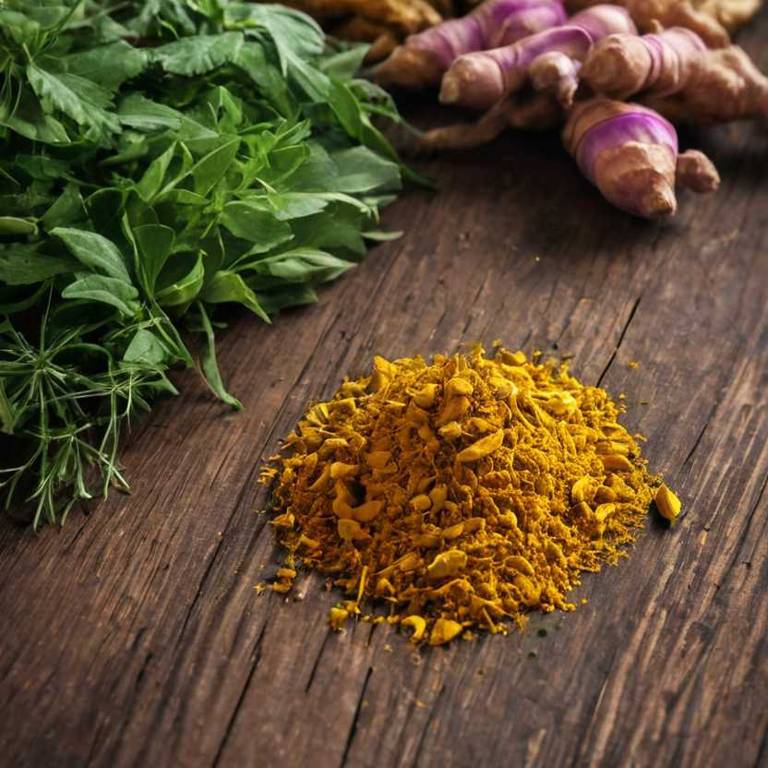Turmeric
Curcuma aromatica
Ashwagandha is a prominent medicinal herb in Ayurvedic medicine, classified as a rasayana (rejuvenator). It is primarily utilized as an adaptogen to help the body manage physical and chemical stress.
Family
Solanaceae (Nightshade)
Native Region
India, Middle East, Africa
Part Used
Root, Leaf, Berry

Botanical Identification
Turmeric, scientifically known as Curcuma aromatica, belongs to the ginger family, Zingiberaceae. It is also called "Haldi" in India and "Kurkuma" in some European languages. A perennial herb native to Southeast Asia, it features rhizomes, lance-shaped leaves, and yellow flowers. Common synonyms include Curcuma longa and Curcuma domestica in herbal texts.
Active Compounds
Turmeric contains key bioactive compounds such as terpenoids, flavonoids, and essential oils. These compounds work synergistically to provide anti-inflammatory and antioxidant effects. Their combined action enhances the herb's therapeutic potential in herbal medicine.
- Terpenoid
- Flavonoid
- Essential oil
Therapeutic Indications
| System | Condidtion | Action |
|---|---|---|
| Musculoskeletal | Arthritis, joint pain, post-surgical inflammation, gout | Anti-inflammatory |
| Digestive | Gastrointestinal inflammation, gastritis, digestive disorders, pancreatic inflammation | Anti-inflammatory, carminative, spasmolytic, anti-ulcer |
| Integumentary | Skin infections, wound healing, skin irritation, skin ulcers, skin allergies | Antimicrobial, anti-inflammatory, antioxidant |
Preparation Methods
Decoction: Used for digestive issues and inflammation due to its anti-inflammatory properties.
Infusion: Used for respiratory issues and mild digestive discomfort due to its soothing effects.
Extract: Used for pain relief and skin conditions due to its high concentration of active compounds.
Safety Profile
Turmeric is generally safe when used in typical food amounts. However, high doses may cause stomach upset or allergic reactions. It is contraindicated in individuals with gallbladder disease due to its potential to increase bile production. Always consult a healthcare provider before use, especially for prolonged periods or in therapeutic doses.